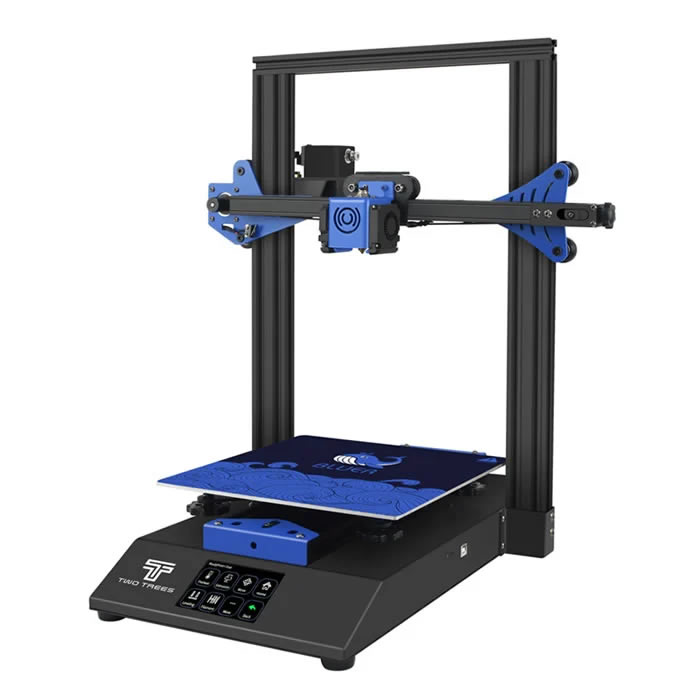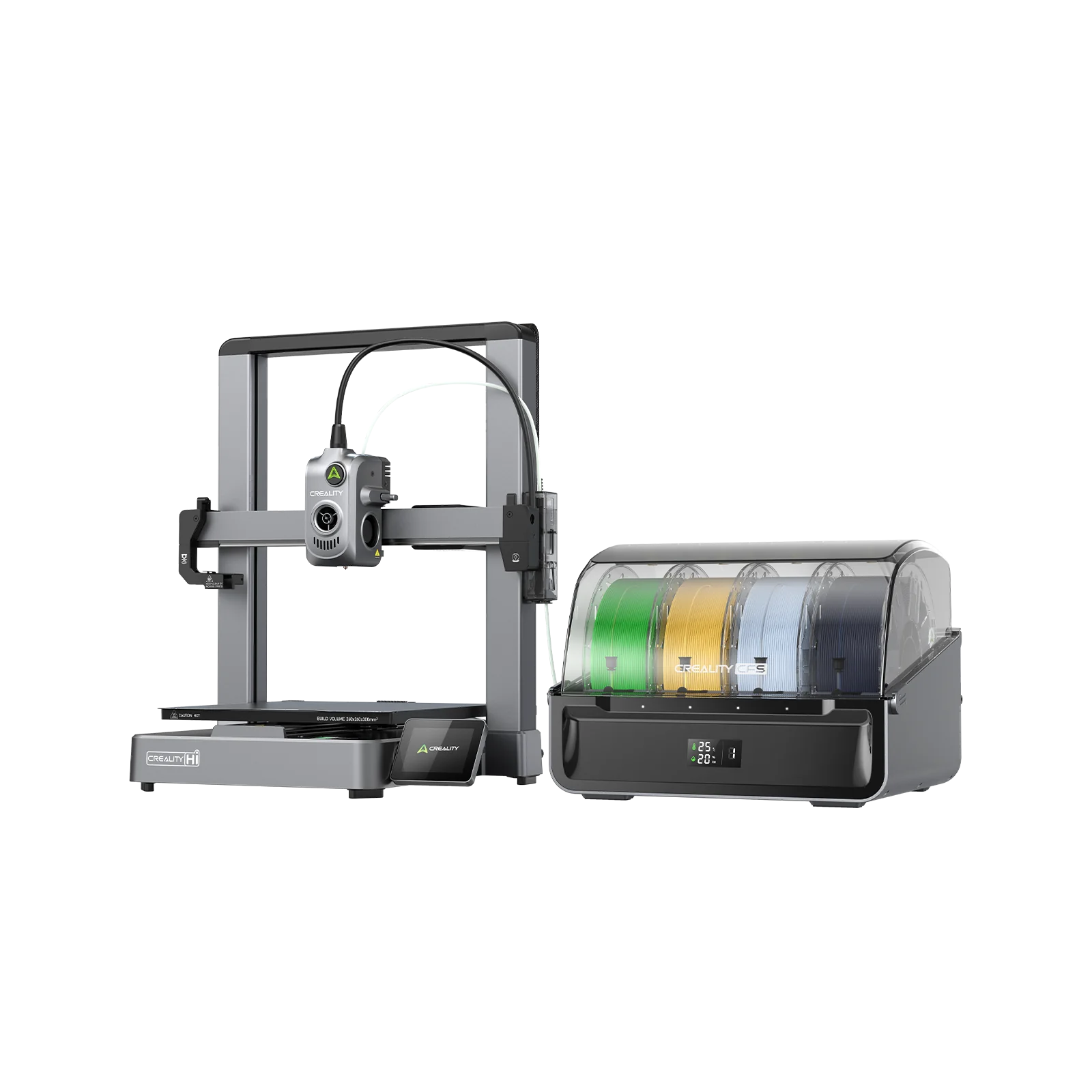Compare Bluer vs Hi Combo
Comparison between the best 3D printers
Choose the best 3D printer at the best price. The cheapest 3D printers are here.
Buy a 3D printer here with 3D Fila.
 |
 |
|
| Model | Bluer |
Hi Combo |
| Printing Material | Filament | Filament |
| Buy Filament for TwoTrees Bluer | Buy Filament forCreality Hi Combo | |
| Estimated price | $169,00 | $469,00 |
| Manufacturer | TwoTrees | Creality |
| Release Year | 2019 | 2025 |
| Print Volume [mm] | 230x230x280 | 260x260x300 |
| Printer Size [mm] | 400x410x520 | 409x392x477 |
| Weight [kg] | 8 | 19,14 |
| Power Loss Recovery | YES | YES |
| Enclosed printer | NO | NO |
| Bed Leveling | Manual | Automatic |
| Filament End Sensor | YES | YES |
| Bed type | Heated | Heated |
| Power supply system | Bowden | Direct Drive |
| Standard nozzle | 0,4 | 0,4 |
| Maximum Nozzle Temperature [°C] | 260 | 300 |
| Maximum Bed Temperature [°C] | 100 | 100 |
| Maximum printing speed [mm/s] | 200 | 500 |
| Filament holder | YES | YES |
| Camera for supervision | NO | NO |
| Recommended filaments | PLA, PETG | Hyper-PLA/PLA/PETG/ABS/PLA-CF |
| Recommended slicers | Cura, Simplify, Slic3r | Creality Print 5.1 |
| Maximum Resolution [mm] | 0,1 | 0,1 |
| Processor | MKS Robin Nano V1.2 + TMC2208 | |
| Display | Touchscreen TFT 3,5'' | Touchscreen 3,2'' |
| Power Supply | 240W | 390 W |
| Connectivity | SD / USB | SD Wifi Creality Cloud |
| Operating systems | Windows, Mac, Linux | Windows, Linux e Macbook |
| Date of registration in the system | 2021-09-20 | 2025-01-27 |
| Release date | 2019 | 2025 |
| Extra features | The Bluer offers interesting features such as automatic bed leveling, a 3.5-inch color touchscreen for easy operation, and a filament sensor to prevent print failures. It has a robust metal extruder and a generous 230 x 230 x 280 mm print volume, suitable for a variety of projects. The community mentions improvements made by Two Trees based on feedback, increasing its reliability. | The Creality Hi Combo is an advanced 3D printer featuring the CFS system for up to 16 colors and intelligent filament management. It boasts a robust metal frame, speeds up to 500 mm/s, precise auto-leveling, an integrated extruder design, easy-to-swap tri-metal nozzle, and active vibration sensing for smooth prints. Its 95% pre-assembled, with a foldable touchscreen, built-in camera with privacy protection, and Creality OS support for a seamless and powerful experience. |
| Support for multiple colors and materials (AMS and CFS) | NO | YES |
Notes * |
||
| Cost-benefit | 7 / 10 | 8 / 10 |
| Hardware | 2 / 10 | 5.4 / 10 |
| Tela | . | . |
| Print volume | 3 / 10 | 4 / 10 |
| Performance | 2 / 10 | 4 / 10 |
Conclusion |
| In comparing the TwoTrees Bluer and the Creality Hi Combo 3D printers, several key differences emerge that cater to varied user needs and preferences. The TwoTrees Bluer stands out as a budget-friendly option, designed for hobbyists and beginners. Its features, such as a 230 x 230 x 280 mm print volume, manual bed leveling, and a decent max printing speed, make it suitable for basic projects. Its cost-effectiveness is reflected in the decent performance it offers for lower-demand applications. However, it lacks some advanced functionalities and faster speeds that users may find limiting over time. On the other hand, the Creality Hi Combo presents itself as a premium model, showcasing advanced technology and features that appeal to more experienced users or professionals. With a larger print volume of 260 x 260 x 300 mm, automatic bed leveling, and impressive print speeds of up to 500 mm/s, it addresses the needs for efficiency, precision, and versatility in materials. Its support for multiple colors and intelligent filament management adds another layer of sophistication, making it a powerful tool for complex projects. Ultimately, the best choice depends on the individual needs of the buyer. If you're entering the world of 3D printing or have a modest budget, the TwoTrees Bluer offers good value. Conversely, if you're looking for a more advanced machine with enhanced capabilities and don't mind investing more, the Creality Hi Combo is the superior option. Thus, the decision hinges on the balance between budget, performance, and intended use. |

